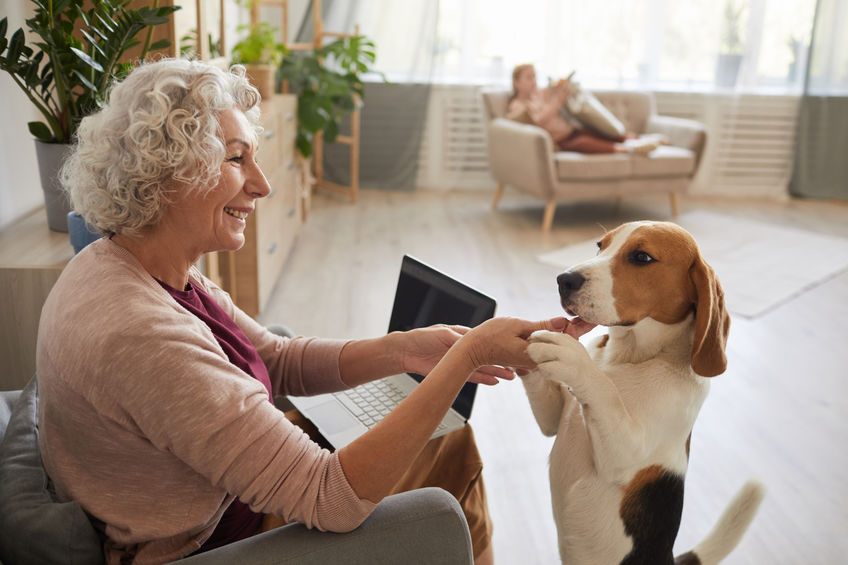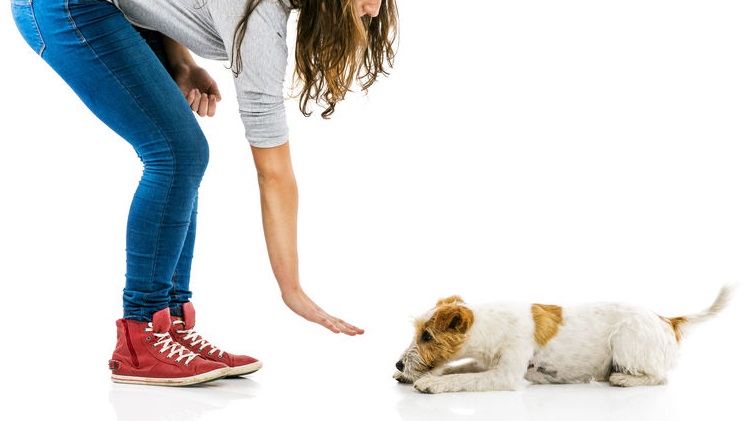Dogs and separation anxiety
With lockdown being eased, the issue of separation anxiety in dogs is raising its head for some Auckland dog owners again. Recently, the Dog Fixer was speaking on Radio NZ on this issue and ways to deal with it. He’s been dealing with dogs in Wellington as their owners have headed back to work after the Covid-19 lockdown.
The essence of his message is that dogs tend to get anxious and develop post-lockdown blues when they are not communicated to correctly. Basically, we can do more to understand dogs better. Dogs have an understanding of us, but we tend to over-humanise dogs. We indulge ourselves in anthropomorphism, the attribution of human traits, emotions, or intentions to our dogs and we can be prone to using dogs as a comfort.
Dog speak
We humans communicate in a manner that is way different to dogs. We’re verbal, we use emotion, whereas dogs use instinct and they do not do bad things out of anger, disobedience, or spite. Dogs are motivated by the moment in which they’re living.
Signs of separation anxiety in dogs
 Does your dog continuously follow you around the house or sleep with ‘one eye open’ just in case you are about to leave? We may think it’s because they love us, but in fact it’s because they think have to keep an eye on us. However, that shouldn’t be the case. Your dog does not have to follow you everywhere. Yes, he can watch but he should be able to wait until you request his company.
Does your dog continuously follow you around the house or sleep with ‘one eye open’ just in case you are about to leave? We may think it’s because they love us, but in fact it’s because they think have to keep an eye on us. However, that shouldn’t be the case. Your dog does not have to follow you everywhere. Yes, he can watch but he should be able to wait until you request his company.
You and other members of your family are the pack leaders, and you need to be recognised as such. For example, if your dog always comes up and nudges you demanding a pat, you might think this is cute and give him a pat.
But, this becomes a habit, and your dog thinks “I am in control and I can tell you what to do.” Then, when you don’t feel like patting him, he becomes stressed because he isn’t the boss after all.
Leaping all over people when they came into the house can happen because your dog is assessing where new people fit into the hierarchy. However, that is not really your dog’s job. You are the pack leader, so you should be able to open the door without their ‘helpful’, noisy assistance.
Co-dependency
Breaking co-dependency and setting basic boundaries helps separation anxiety in dogs. Many dog experts believe obedience training and discipline is the key as it lets your dog know what is expected of him. Show your dog what you want from him in and around the house and during daily routines helps his good behavior become a habit. He then feels wrong about an unwanted behavior even without you letting him know about it.
Active training
 Many trainers advocate active training as a way of getting good management and conditioning in place and it doesn’t require very much time, about 10 – 20 minutes a day. Two minutes here, five minutes there and you can do it around the house. These little changes will help teach your dog to have the self-confidence he needs to handle being alone.
Many trainers advocate active training as a way of getting good management and conditioning in place and it doesn’t require very much time, about 10 – 20 minutes a day. Two minutes here, five minutes there and you can do it around the house. These little changes will help teach your dog to have the self-confidence he needs to handle being alone.
What is active training?
Active training has a set goal – the focus is on one or more particular behaviours. It’s a good idea to work in very short sessions and have your treats prepared. 30 seconds to 90 seconds is common, occasionally going up to three minutes per session, as dogs don’t tend to have particularly long attention spans and it’s a good idea to leave them wanting more.
Teach your dog to sit at the door, lie down, and stay while you go out of sight for increasing periods of time in your own house. Train your dog to sit and wait to be greeted by guests, move aside when you go to the refrigerator, and go to the bathroom on cue. In general, you should be teaching your dog in small steps to be a respectful and have confidence in himself.
Grab a lead – not only for walkies. Use it in the house. A lead can become a tool you can use at any time by simply picking it up. If your dog is barking at a guest as they see that person as a threat toward you, place the lead on the dog so you can remove them from the scene and then reward them when they go back to a calmer place.
Alleviating anxiety and stress
To ensure your dog is happy and content when left alone, it’s particularly important you factor training into your day, not just classes once a week, but training often and consistently.
Also remember, another important factor in reducing separation anxiety in dogs is to make arrivals and departures as low-key as possible. When you leave, go quietly without making a fuss. If you give your dog lots of attention just before you go, it will make the anxiety worse. And when you come back, regardless of how long you’ve been away, ignore your dog for a few minutes, then say hello quietly. Remember though, in order to improve your dog’s anxiety levels, it is essential to do this every time.
Training to avoid separation anxiety in dogs
Exercise, obedience, leadership; rules, boundaries, and limitations, all of these are necessary for a balanced dog. Consistency from you and from every human in your household will be also crucial to build your dog’s confidence in you as his pack leader, and also in himself.
Small anxieties can grow
Milder symptoms of separation anxiety that build over time and develop into bigger ones. Anxieties can lead to medical problems. It is therefore important to identify the cause of stress and get to the root of the problem. A vet check will help to identify any underlying health issues, and if necessary they can help on an on-going basis.
A valuable solution
To reduce separation anxiety, it is preferable your dog is not left unsupervised for longer than 3 to 5 hours at a time. That’s when dog day care can be a lifesaver, or at the very least, a housesaver.
In dog day care, your dog gets the company of humans and dogs while you’re away. Doggy daycare offers a comfortable, safe, and controlled setting and daycare dogs benefit from physical exercise, supervised socialisation and mental stimulation. Our “Doggie Day Care” two or three days a week can work off some of your dog’s excess energy.
Enroll your dog in day care even if it’s just a day or two a week. On top of getting a change of scenery you dog will also get lots of loving attention from trained dog lovers. This works if their anxiety is more about being alone as opposed to being without you specifically. The people who run and work in doggie daycare centres love dogs – that’s why they run that type of business.
Doggie day care with us
If you are thinking of bringing your dog to stay with us, we hope this list of our pet care will help with any possible pet separation anxiety we humans can suffer from.
- All care, all responsibility: our staff are all fully trained animal lovers who will visit and monitor your pet throughout the day for cleaning, feeding, as well as special playtime and smooches.
- Good grub: we only feed our guests quality pet food. Dogs under our care are fed Eukanuba and Royal Canin. Our cats gate Royal Canin Fit. Specific diet requirements can also be catered to. We are happy to give your pet their own special dog food when provided.
- Food watch: our staff monitor your pet’s food and water intake and will take action should any pet not be handling their stay well.
- Safe play: during exercise and playtime, our visiting dogs are grouped according to size, age and temperament to make sure our smaller dogs don’t feel anxious by being with larger dogs. Small dogs within a similar age, nature, size and breed have their own purpose-built kennel building and exercise yard. We give the dogs exercise and playtime twice daily: first thing in the morning and again in the afternoon. All play and exercise time closely is monitored by our team of trained staff.
- Vets on call: Should they be needed, we have a very experienced team of veterinarians on call 24/7.
Your dog will be well looked after at our doggy day care.
If you’re looking for a comfortable, safe and secure environment for your dog, call us on 09 299 7415 to ask about our dog day care options.
Inspections are welcome 10.00 a.m. – 4.00 p.m. each day. Why not see what some of our past pet guests have to say about our doggie day care?
